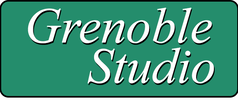|
The Orff Schulwerk Program
Any musical experience should be regarded for its worth in creating better human beings. For the sake of personal enjoyment, self expression and accomplishment, in addition to the association and communications of ideas found in a musical ensemble, the joy of music making should be part of everyone’s life. Music is the oldest and most powerful artistic expression of man, and from the youngest to the oldest, it is to be found all around us. As consumers of music, value judgments need to be developed. As performers of music, aural, visual and physical skills need to be acquired. The more one is able to understand and appreciate, the greater the aesthetic experience. |
Our Goal Provide children with a basis for learning about music through movement, percussion ensemble and voice. The goal is not merely to develop techniques and pieces, but to cultivate fundamental musicianship, the proper relationship of pulse, rhythm, melody and harmony, and the freedom to express one’s own musical ideas as well as others. Children will learn all the musical fundamentals they will need later when they advance to sophisticated keyboard, orchestral and folk instruments. |
Children begin as musicians, and the best musicians are those who never lose the natural sensitivity to sound and the love of beat, rhythm and melody found in early childhood. It is important to keep this sensitivity alive and developing throughout one’s lifetime so that it can be used as the basis for one’s own musical expression.
The Schulwerk is a philosophy of musical education developed by the Bavarian composer Carl Orff and his colleague, Gunild Keetman, in 1920. The program is based on the songs, body percussion exercises, and the rhythmic and melodic ensembles found in five volumes called “Das Schulwerk”. These volumes are the guidelines for class experiences in pulse, rhythm, the scales and chord progression of the pentatonic, hexatonic, major, minor and other modal scales.
The program provides children with a basis for learning about music through movement, speech, percussion ensemble and voice. Improvisation is emphasized along with the development of composition and dictation skills. Pieces and exercises are used to cultivate fundamental musicianship. Lessons are designed to give students the opportunity to experience through exploration, imitation and creation the art of music making.
The students create sound settings and rhythmic or melodic accompaniments. They compose songs and instrumental pieces. They find musical concepts in the folk lore of our country and that of other cultures. They work in the areas of physical coordination, concentration, mental hearing and memory span. Musical literacy develops in relationship to what the students have experienced.
Various sizes of hand drums, timpani, rhythm and well-tuned melodic instruments from the percussion family are used to develop musical expression, learn about theories and experience ensemble playing. The quality and intonation of the tonebar instruments contribute greatly to ear training and singing. The playing technique of these mallet instruments give the students further experience in refining their right-left coordination, arm-wrist and finger dexterity. Recorder, cello, guitar and dulcimer give students a wind and string experience and are used to provide additional sound colors and textures.
Often students will choose choir or keyboard, orchestral or band instruments as they progress. The Orff program then continues to maintain and develop the essential skills necessary for successful expression on their chosen instrument.
Since the students sing, play instruments and move, there are many different melodic and rhythmic patterns being created and heard simultaneously. This then creates harmony. It is here, in the sound of the ensemble, that students feel their individual value as part of the total. The students are able to gain insight into music making that could never be achieved by passive listening. It is this group experience that reinforces and augments the skills being developed individually.
The Schulwerk is an active, participating, constantly changing music program. It is not a page by page presentation of musical skills to be overcome, but rather a program designed by the teacher to fit the needs and development of the class members. From the program come students who have a basic vocabulary for their personal use in the world of music, and possess a reservoir of physical, mental and aesthetic experiences to aid in the enjoyment of musical performance, listening and composition.
©Barbara J. Grenoble
The Schulwerk is a philosophy of musical education developed by the Bavarian composer Carl Orff and his colleague, Gunild Keetman, in 1920. The program is based on the songs, body percussion exercises, and the rhythmic and melodic ensembles found in five volumes called “Das Schulwerk”. These volumes are the guidelines for class experiences in pulse, rhythm, the scales and chord progression of the pentatonic, hexatonic, major, minor and other modal scales.
The program provides children with a basis for learning about music through movement, speech, percussion ensemble and voice. Improvisation is emphasized along with the development of composition and dictation skills. Pieces and exercises are used to cultivate fundamental musicianship. Lessons are designed to give students the opportunity to experience through exploration, imitation and creation the art of music making.
The students create sound settings and rhythmic or melodic accompaniments. They compose songs and instrumental pieces. They find musical concepts in the folk lore of our country and that of other cultures. They work in the areas of physical coordination, concentration, mental hearing and memory span. Musical literacy develops in relationship to what the students have experienced.
Various sizes of hand drums, timpani, rhythm and well-tuned melodic instruments from the percussion family are used to develop musical expression, learn about theories and experience ensemble playing. The quality and intonation of the tonebar instruments contribute greatly to ear training and singing. The playing technique of these mallet instruments give the students further experience in refining their right-left coordination, arm-wrist and finger dexterity. Recorder, cello, guitar and dulcimer give students a wind and string experience and are used to provide additional sound colors and textures.
Often students will choose choir or keyboard, orchestral or band instruments as they progress. The Orff program then continues to maintain and develop the essential skills necessary for successful expression on their chosen instrument.
Since the students sing, play instruments and move, there are many different melodic and rhythmic patterns being created and heard simultaneously. This then creates harmony. It is here, in the sound of the ensemble, that students feel their individual value as part of the total. The students are able to gain insight into music making that could never be achieved by passive listening. It is this group experience that reinforces and augments the skills being developed individually.
The Schulwerk is an active, participating, constantly changing music program. It is not a page by page presentation of musical skills to be overcome, but rather a program designed by the teacher to fit the needs and development of the class members. From the program come students who have a basic vocabulary for their personal use in the world of music, and possess a reservoir of physical, mental and aesthetic experiences to aid in the enjoyment of musical performance, listening and composition.
©Barbara J. Grenoble
Any Questions? |
Copyright 2007-2023 Grenoble Studio of Musical Arts. All Rights Reserved.
No unauthorized copying of any photo/text without the expressed written permission by Grenoble Studio of Musical Arts.
No unauthorized copying of any photo/text without the expressed written permission by Grenoble Studio of Musical Arts.

